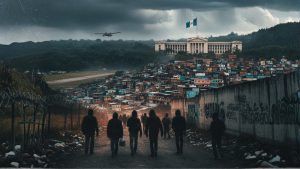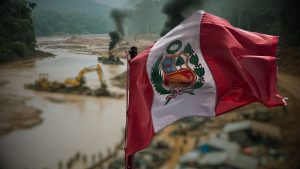R. Evan Ellis[1]
In Part 1 of this work[2], I described the challenges facing Gabriel Boric and José Antonio Kast—the two candidates in the Chilean presidential runoff on Sunday, December 19—as they attempt to win the election and navigate the politics of the Constituent Assembly. The election is only the beginning of a turbulent time for Chile’s political and economic future, as whichever candidate wins will face obstacles in implementing his agenda.
Implementing the Agenda
If Boric wins, he must pull together a coalition of left-of-center and independent Chilean political parties against a relatively more monolithic, if disheartened, center-right. Boric has sought to present himself as open to negotiate and work with others from different parties, a skill that many will demand of him if he wins[3].
In Chile’s 50-seat Senate, Boric’s Apruebo Dignidad coalition emerged from the general election controlling only 6 seats[4]. Even when adding the 16 seats of the center-left New Social Pact, Boric is still short of a legislative majority, requiring him to build any coalition with some of the five seats that will be held by centrist parties or the 22 that will be controlled by the center-right Podemos coalition[5].
In Chile’s 155-member lower house, Boric faces a similar situation. His coalition will control only 37 seats, with the New Social Pact controlling another 37, forcing him to reach out to some of the 13 independents or 53 members of the Podemos coalition to successfully pass any legislation[6].
The difficulty of Boric’s situation with Chile’s left, as well as its right, is reflected in his prior criticisms of Chile’s then-President Michelle Bachelet, and Bachelet’s belated endorsement of Boric[7].
Despite the delicate balance Boric will face in Chile’s Congress, the dominant role played by the Chilean Communist Party in his own Apruebo Dignidad coalition, including that of his Communist campaign manager[8] Izkia Siches[9], could limit his orientation to compromise following the election.
Beyond style, ideology, and politics, some Chileans interviewed for this work worry about whether Boric will be up to the demands of administering an entire country under complex conditions, given not only his youth, but also his lack of administrative
experience in a traditional job, his lack of experience with the responsibilities of a family and children, and his failure to complete his law degree.
Were Kast to win instead of Boric, the situation would not necessarily be better. Chile would likely enter into a prolonged period of legislative gridlock. Kast’s Christian Social coalition will control only one of 50 seats[10] in the Senate and only 15 seats[11] in the House, forcing him to work with the center-right for any legislation. As noted previously[12], the Constituent Assembly tasked with rewriting the Chilean constitution is dominated by left-of-center parties and nontraditional politicians, President Kast will likely oppose the document that they produce. This conflict will set the stage for a difficult and emotionally charged approval process.
Maintaining Investment in Chile and Economic Performance
Chile’s period of turmoil, beginning with the October 2019 protests, and compounded by the uncertainty of the rewriting of the constitution, the shock of COVID-19, and the possible victory of the most left-wing government in Chile’s post-dictatorship history[13], has profoundly shaken business confidence in what was once considered the exemplar of good governance and political stability in South America[14]. A Boric administration will be challenged to satisfy his politically mobilized supporters on the left, with their probably unsatisfiable expectations for change, in a fiscally constrained environment[15], while implementing a new constitution that alters the rules of the game, without precipitating an economic crisis that compounds the challenge[16].
Boric has declared his goal of transitioning Chile toward a “welfare society.”[17] To pay for the expanded programs that he has outlined, which include free university education and improved health services[18], he says that he will increase mining royalties, increase efforts against tax evasion, and impose a “green tax.” Yet each is likely to impact sectors critical to Chile’s economy.
Boric has further pledged to replace Chile’s private pension system with a universal public one[19], but the fiscal costs for the Chilean government to assume pension obligations for a new generation of Chileans, and the dilemma of how to treat Chileans who made differential contributions to Chile’s private system, those who withdrew part of their pensions under COVID-19 when the government allowed it [20], and those who did not, will likely fuel a heated public debate.
In a similar fashion, Boric has pledged to support “green” investment and promote small and medium enterprises and not raise taxes on them yet has also said that he will increase the minimum wage and decrease the length of the workday, both of which would likely hit small and medium enterprises hard.
Chile’s Relationship with the People’s Republic of China
In the context of Chile’s grave economic and political challenges, as Western investors and institutions equivocate about investing in the country, decisions by the People’s Republic of China [21] (PRC) regarding the purchase of Chilean commodities and investment in the Chilean economy will take on added importance. Recent strategic decisions, like the Chilean government’s exclusion of a Chinese company from a bid to administer Chile’s national civil registry[22], which would have put the personal data of all Chileans at risk, highlight the importance of thinking about where Chile’s core interests lie in both pursuing and limiting the relationship with the PRC. Yet both the Boric and Kast presidential campaigns have been remarkably silent on Chile’s potential relationship with the PRC. One of the few, if indirect, exceptions was a suggestion by Boric that his government would reconsider some bilateral trade commitments, and would not ratify Chile’s participation in TPP-11[23], although since Round 1 of the election, Boric has backed away from that position.
Chile’s trade with the PRC has grown 17-fold since 2017[24]. China purchases half of all of Chile’s copper[25], the nation’s major export, and Chinese demand plays a significant role in the international price for the commodity[26]. The PRC is also a key export market for Chile’s potassium nitrate, wines, fruits, and other goods. Although China’s demand for Chile’s exports should mostly reflect market forces, Chinese concerns over contamination of Chilean fruit[27], and PRC sanctions against other producers[28] highlight that Chilean economic uncertainty will increase PRC leverage over the country through its purchase decisions.
In a similar fashion, uncertainty among Western investors will increase the leverage of their Chinese counterparts in sectors such as lithium, electricity, telecommunication, and retail. Indeed, in the electricity sector, five recent acquisitions in the past five years by PRC-based firms of companies with assets in Chile have given the PRC control over 57 percent of electricity distribution in the country[29].
Chile, with its strong interests in commercial and other ties to Asia, has been a “comprehensive strategic partner” of the PRC since November 2016[30], and a signatory to China’s Belt and Road Initiative since November 2018[31]. It has also been a member of the China-led Asia Infrastructure Investment Bank (AIIB) since July 2019[32]. The combination of economic need and willingness from the left-of-center Boric government may open up possibilities for government-to-government deals with the PRC that previous Chilean governments would not have accepted.
On the other hand, although a Boric government could benefit the PRC in some ways, a relatively positive story done by the Chinese news agency Xinhua about Kast as the candidate of law and order[33] suggests that the PRC may see a Kast presidency in some ways as less risky than a Boric one.
Lithium, Mining and Environmental issues
Chile currently has a climate change-oriented energy strategy through 2050[34], and a complimentary mining strategy for the period[35]. Both are built around a compromise between environmental considerations and the importance of those sectors for the Chilean economy. The Chilean left has demonstrated strong concern for environmental issues, yet it is not clear how far they are prepared to shift that balance.
Boric has pledged to move to a carbon neutral economy[36], but will be pressed to do so without incurring unsustainable government spending or making Chilean mining and other industries less competitive.
With respect to lithium mining, the Chilean left has made water rights a particular focus of concern[37]. Nonetheless, the question of lithium extraction, which competes for scarce water in the Atacama desert[38], may play a significant role in the nation’s economic development, including an important role by PRC-based company Tianqi in the sector[39]. Chile’s new government will have to make important decisions about tradeoffs between mining and development in that regard.
Security Reform
Chile’s militarized police, the Carabineros, have come under fire by the left for alleged abuses[40]; there have been proposals in the Constitutional Convention currently underway to eliminate the institution[41]. Some talk about transforming the body into a much less military-oriented structure[42]. Yet the institution is one of the country’s most effective law enforcement establishments. Eliminating or transforming the Carabineros, particularly during a moment of heightened political tension and growing pressures from irregular immigration, drugs, and other transborder crime and terrorism (as detailed in the subsequent sections) could seriously impede the government’s ability to manage such challenges, or increase the possibilities of errors as other, less prepared organizations are obliged to take on the missions which the Carabineros were resourced and trained to handle, leading to more lives lost and an expansion of violence and polarization.
Immigration, Drugs, and Transnational Organized Crime in the North
Independent of Chile’s political unrest and COVID-19, the nation continues to face challenges from illicit flows of people and goods across its northern border.
With respect to narcotrafficking, the use of Chilean ports to move drugs has reportedly expanded significantly in recent years, particularly in the north, where there is a “drug axis[43]” connecting to Bolivia and Paraguay through Chile, and increasingly involving foreign narcotraffickers from Ecuador, Colombia[44], and elsewhere. In 2020, the Chilean military was making record-sized seizures[45]. Such flows have also fed the internal market, with Chile’s consumption of illicit drugs growing 680 percent since 2017[46]. 79 percent of Chileans reported that the challenge from drug organizations was the number one security challenge facing the country[47].
Immigration has also become a significant political and security issue[48] in Chile, with traditional entry of Peruvians and Bolivians into the country, principally across the northern border, supplemented in recent years by the arrival of half a million Venezuelan refugees[49], as well as immigrants from Haiti[50], Africa[51], and elsewhere. Reflecting the impact of those flows on the local population, fueled by the accumulation of 3,000 people in the northern border town of Iquique, a protest by some 5,000 Chileans in September 2021 turned violent, including attacks against some of the immigrants and burning of their belongings[52]. Tapping into such frustrations, Kast notoriously used one of the presidential debates to propose digging a 3-meter deep ditch to obstruct crossings[53].
The arrival of populist governments in both of Chile’s northern neighbors will likely both add to pressures for economic migrants from those countries to enter Chile in coming years, and based on Colombia’s experience with populist neighbor Venezuela, may facilitate the smuggling of drugs from populist neighbors into Chile if their security apparatuses and willingness to enforce drug laws deteriorates. Such increases in illicit flows will particularly challenge Chile if a left-oriented government reduces the resources available to Chile’s Carabineros, military, and other security forces to confront the challenge.
The Mapuche Conflict
Chile’s Constituent Assembly, headed by Mapuche scholar Elisa Loncón, and with 17 seats reserved for Chilean indigenous peoples[54], will continue to give added political visibility to the question of Mapuche land rights and their political role in the new Chile. The deliberations of the assembly, the language of the proposed new constitution it produces, and whether that constitution is accepted by the population in the fall 2022 plebiscite are each likely to further polarize the country on the issue. It is likely to stimulate reactions among both radical Mapuche elements such as the Coordinadora Mapuche de Comunidades en Conflicto Arauco-Malleco (CAM)[55]. These factions have periodically killed Chilean landowners in the region and attacked their property and government assets, including attacks in January 2018 in anticipation of the visit of the Pope to the country[56]. Already, in the currently polarized national context such incidents, including burning of construction equipment, rose 94% in the first six months of 2021, obliging the Piñera government to declare a state of emergency in two provinces[57].
The new Chilean constitution, which may contain language about Chile as a plurinational state[58], is unlikely to resolve the issue[59], but rather, could stir up protest and political violence. Such violence and the response of a Boric government will put his administration to the test, since he has positioned himself as sensitive to Indigenous issues on one side, yet politically and legislatively will not wish to afford losing the Chilean center by being perceived as soft on terrorism. The problem will be even more difficult for the government to manage and will be more vulnerable to errors if either the government or the new Chilean constitution, eliminates the Carabineros, which has been the principal security force responding to the CAM threat[60].
Chile’s Relationship to an Increasingly Left-Oriented Region
Chile’s new government will come to power in the context of neighbors on balance more to the left and experiencing greater social tumult than any time in the country’s recent history. Indeed, for the first time, all of Chile’s neighbors—Peru, Bolivia, and Argentina—will be leftist populist states. Influential leftist organizations in the region such as the Grupo de Puebla have openly supported the Boric candidacy[61]. Neither Boric nor Kast has paid much attention to Chile’s foreign policy path in this complex new environment in their campaigns aside from generalized discussions about globalization and a trip by Kast to the United States. During his visit at the end of November[62], Kast built bridges with U.S. politicians and policy analysts, including meetings with Republican Senator Marco Rubio[63], an interview on CNN en Español with Andres Oppenheimer[64], and meetings at DC think tanks.
Chile’s new government will be challenged to find its place in that spectrum and assert the country’s role on foreign policy issues, understanding that the authoritarian character, human rights abuses[65], or criminal ties[66] of some leftist governments such as Venezuela, Nicaragua, and Cuba may offend the sensitivities of the principled Chilean left, particularly as they seek to build coalitions with the center to implement their own legislative agenda, as discussed previously.
Chile’s government will also be challenged to make choices regarding its position in regional institutions such as the OAS and various parts of the Inter-American system, and more anti-U.S. alternatives such as Community of Latin American and Caribbean States (CELAC) and ALBA. The Chilean Left will also face complicated decisions regarding the country’s traditional orientation toward free trade and neoclassical economics and its membership in institutions such as the Comprehensive and Progressive Agreement for Trans-Pacific Partnership (TPP-11) and the Pacific Alliance. Boric and his movement have talked about reviewing all of Chile’s trade agreements, and possibly not ratifying TPP-11, although in recent weeks, he has softened his position on the issue.
Question of Military Privileges, Protections, and Funding
Chile’s transition back to democracy was in part made possible by the country’s 1980 constitution, which guaranteed special privileges for the Chilean military and made it easier for these officials to give up power. The constitution granted the military the right to select its own leadership, reserved seats for Generals in the Chilean Senate, and directed 10 percent of the revenues from Chile’s copper exports to the military, although such privileges have since been modified[67]. If Boric becomes President, the administration may take a less friendly posture toward the Chilean military than have previous administrations. Amid competing fiscal demands from the pandemic, a potential Boric administration will likely decrease funding for the armed forces.
Another issue that may cause discomfort for the Chilean military is the relative lack of people within the Communist Party and other parts of the extreme left in Boric’s coalition with the experience and knowledge to engage effectively with the Ministry of Defense on the details of the nation’s four-year defense budget. The result could be programmatic decisions that generate concern within the Chilean military, coupled with policies and a public tone that undercuts their prestige, autonomy, and institutional integrity. Such sources of discomfort would occur at a time when the left, including the Communist Party, which dominates Boric’s coalition, is expanding its power in a manner greater than any time since the presidency of Salvador Allende.
Recommendations and Conclusions
Decisionmakers in the United States, for whom Chile has long been a stable partner, must prepare for the possibility that the country could fall into a extended period of deep economic and political difficulty. The legacy of Chile’s strong institutions and political culture makes it likely that the country will ultimately endure the pressures that would pull it apart. Nonetheless, the United States has a strategic interest in ensuring Chile’s health as an economically and institutionally healthy pro-Western government in a region increasingly turning to the populist left. In addition to continued strong U.S. diplomatic engagement, security cooperation, and other forms of partnership, the United States should also look to its European and Asian partners, with their own special political and economic relationships in the country, to help ensure that Chile does not go off the rails.
With respect to China’s advance in Chile, it will be vital for the United States to encourage Chile not to depart from its tradition of transparency, strong institutions, and application of a level playing field when engaging with the PRC (and other partners). U.S. diplomats should also continue to provide Chile with incentives to limit its engagement with PRC-based firms in strategically sensitive areas such as telecommunications, surveillance, e-commerce and “smart cities.” Bringing Chinese components into its architectures might limit the United States’s ability to work with Chile as closely as it has in the past.
Finally, the United States must prepare for the worst: a Chile that turns inward, faces more civil violence, and ceases to play a stabilizing role in the region. The U.S. must anticipate what that could mean for the trajectory of the Western Hemisphere, and how it impacts multilateral diplomacy and the ability of organized crime to operate in the country.
Endnotes:
- R. Evan Ellis is Latin America Research Professor with the U.S. Army War College Strategic Studies Institute. The views expressed in this work are his own. The author thanks John Griffiths, Pamela Arostica, and the others who provided important insights into this work. ↑
- R. Evan Ellis, “Challenges Facing Chile’s Next Government: Part 1”, ceeep.mil.pe (December 14, 2021), https://ceeep.mil.pe/2021/12/14/challenges-facing-chiles-next-government-part-1/?lang=en ↑
- Cody Mcfarlane, “Chile elections Boric and Sichel platforms”, axiom.legal (July 21, 2021), https://axiom.legal/2021/07/21/chile-elections-boric-and-sichel-platforms/ ↑
- Hector Muñoz, “Yasna Provoste: «Seremos ‘oposición’ al eventual gobierno de Boric»”, futuro.cl (November 21, 2021), https://www.futuro.cl/2021/11/yasna-provoste-seremos-oposicion-al-eventual-gobierno-de-boric/ ↑
- Ibid. ↑
- “Elecciones 2021 en Chile: Revisa acá los resultados de los comicios de presidente, diputados y senadores en tiempo real”, latercera.com (November 21, 2021), https://www.latercera.com/politica/noticia/elecciones-2021-en-chile-revisa-aca-los-resultados-de-los-comicios-de-presidente-diputados-y-senadores-en-tiempo-real/GMHLZ6ZH4ZAJPCHUNBKATTUX3U/ ↑
- “La expresidenta Bachelet apoya a Boric: ‘No da lo mismo por quién se vota’”, efe.com (December 14, 2021), https://es.noticias.yahoo.com/expresidenta-bachelet-apoya-boric-vota-162827362.html ↑
- Mónica Garrido, “Boric oficializa a Izkia Siches como nueva jefa de campaña”, latercera.com (November 26, 2021), https://www.latercera.com/politica/noticia/boric-oficializa-a-izkia-siches-como-nueva-jefa-de-campana/VMRJQRYZSNCIHALX7OC63F4LCE/ ↑
- Daniela Silva, “Izkia Siches no descarta invitar a Paula Daza a un eventual Gobierno de Boric: ‘Creo que la pandemia y lo sanitario tiene que superar los gobiernos de turno’”, latercera.com (November 26, 2021), https://www.latercera.com/nacional/noticia/izkia-siches-indica-que-no-descarta-sumar-a-paula-daza-a-un-eventual-gobierno-de-boric-creo-que-la-pandemia-y-lo-sanitario-tiene-que-superar-los-gobiernos-de-turno/2WQZ6COAURHVHGPMTDVL3YLG34/ ↑
- Hector Muñoz, “Elecciones 2021: ¿quién ganó en el Congreso?”, futuro.cl (November 21, 2021), https://www.futuro.cl/2021/11/elecciones-2021-quien-gano-en-el-congreso/ ↑
- “Elecciones 2021 en Chile: Revisa acá los resultados de los comicios de presidente, diputados y senadores en tiempo real”, latercera.com. ↑
- R. Evan Ellis, “Challenges Facing Chile’s Next Government: Part 1”, ceeep.mil.pe (December 14, 2021), https://ceeep.mil.pe/2021/12/14/challenges-facing-chiles-next-government-part-1/?lang=en ↑
- Fabian Cambero, “Former protest leader Boric seeks to bury Chile’s ‘neoliberal’ past”, reuters.com (November 17, 2021), https://www.reuters.com/world/americas/former-protest-leader-boric-seeks-bury-chiles-neoliberal-past-2021-11-17/ ↑
- “Chile: An Island of Stability in South America”, worldview.stratfor.com (April 28, 2016), https://worldview.stratfor.com/article/chile-island-stability-south-america ↑
- Trading Economics, Chile Government Debt to GDP, tradingeconomics.com, 2021, https://tradingeconomics.com/chile/government-debt-to-gdp ↑
- Michael Albertus, “Chile’s Constitution Is Too New for Its Own Good”, foreignpolicy.com (May 21, 2021), https://foreignpolicy.com/2021/05/21/chiles-constitution-is-too-new-for-its-own-good/ ↑
- Eduardo Thomson y Valentina Fuentes, “Chile’s Presidential Candidates Clash in Crucial, Final Debate”, bloombergquint.com (December 13, 2021), https://www.bloombergquint.com/politics/chile-s-presidential-candidates-clash-in-crucial-final-debate ↑
- “Kast, Boric face off for final time in tepid debate with nods to the center”, laprensalatina.com (December 13, 2021), https://www.laprensalatina.com/kast-boric-face-off-for-final-time-in-tepid-debate-with-nods-to-the-center/ ↑
- Cody Mcfarlane, “Chile elections Boric and Sichel platforms”, axiom.legal (July 21, 2021), https://axiom.legal/2021/07/21/chile-elections-boric-and-sichel-platforms/ ↑
- “Chilean bill to allow for fourth pension withdrawal advances in Congress”, reuters.com (September 28, 2021), https://www.reuters.com/world/americas/chilean-bill-allow-fourth-pension-withdrawal-advances-congress-2021-09-28/ ↑
- Evan Ellis, “Chinese advances in Chile”, theglobalamericans.org (March 2, 2021), https://theglobalamericans.org/2021/03/chinese-advances-in-chile/ ↑
- Cristián Torres, “El Registro Civil de Chile dejó sin efecto la licitación que se había adjudicado a una empresa china”, infobae.com (November 16, 2021), https://www.infobae.com/america/america-latina/2021/11/16/el-registro-civil-de-chile-dejo-sin-efecto-la-licitacion-que-se-habia-adjudicado-a-una-empresa-china/ ↑
- Pato Lucas, Gabriel Boric Contra el TPP, (video) (2017), https://www.youtube.com/watch?v=9SJDHf12jJs ↑
- International Monetary Fund, “Popular Data”, imf.org (2021), https://data.imf.org/regular.aspx?key=61013712 ↑
- Jeppe Saarinen, Dezan Shira & Associates, “Trade in goods, ‘China Briefing’”, china-briefing.com (March 4, 2019), https://www.china-briefing.com/news/china-chile-fta-upgraded-market-opportunities-investors/#:~:text=Over%20half%20of%20Chilean%20exports%20are%20metals%20and,is%20constant%20due%20to%20its%20booming%20construction%20sector ↑
- Alberto Peña, “China’s appetite for copper provides Chile with opportunity”, afp.com (February 24, 2021), https://news.yahoo.com/chinas-appetite-copper-provides-chile-022704299.html ↑
- Cristián Torres, “En Chile acusan a China de mentir sobre un cargamento de cerezas de exportación en su estrategia de desviar el origen real del COVID-19”, infobae.com (January 25, 2021), https://www.infobae.com/america/america-latina/2021/01/25/en-chile-acusan-a-china-de-utilizar-un-cargamente-de-cerezas-de-exportacion-en-su-estrategia-de-desviar-el-origen-real-del-covid-19/ ↑
- Kath Sullivan, “China’s trade sanctions on Australian agriculture force farmers to find new markets”, abc.net.au (February 13, 2021), https://www.abc.net.au/news/2021-02-14/farmers-find-new-markets-after-china-trade-spat/13148704 ↑
- Ariel Cohen, “China’s Journey To The Center Of The Earth – For Rare Minerals”, forbes.com (June 2, 2021), https://www.forbes.com/sites/arielcohen/2021/06/02/chinas-journey-to-the-center-of-the-earth/?sh=4b152655131f ↑
- Ministry of Foreign Affairs of Chile, “Chile and China establish a Comprehensive Strategic Partnership”, minrel.gob.cl (November 22, 2016), https://minrel.gob.cl/chile-and-china-establish-a-comprehensive-strategic-partnership/minrel_old/2017-05-03/122721.html ↑
- Economist Intelligence, “Chile joins China’s Belt and Road Initiative”, country.eiu.com (November 22, 2018), http://country.eiu.com/article.aspx?articleid=917372275&Country=Chile&topic=Politics&subtopic=For_5 ↑
- Ministry of Finance of the Republic of Chile, “Chile joins Asian Infrastructure Investment Bank”, bnamericas.com (July 05, 2021), https://www.bnamericas.com/en/news/chile-joins-asian-infrastructure-investment-bank ↑
- Juan Ramón Rallo, ¿Cuáles son las propuestas económicas de José Antonio Kast?, (video) (November 2021), https://www.youtube.com/watch?v=H4UfkIgCHXc ↑
- El Ágora, “Chile lanza su Estrategia Climática de Largo Plazo para ser carbono neutral en 2050”, elagoradiario.com (October 27, 2021), https://www.elagoradiario.com/latam/chile-estrategia-climatica-2050/ ↑
- Sergio Bitar, “Estrategia minera de Chile 2050”, wsimag.com (October 30, 2021), https://wsimag.com/es/economia-y-politica/67307-estrategia-minera-de-chile-2050 ↑
- Cody Mcfarlane, “Chile elections Boric and Sichel platforms”, axiom.legal (July 21, 2021), https://axiom.legal/2021/07/21/chile-elections-boric-and-sichel-platforms/ ↑
- Ciara Nugent, “An Indigenous Rights Leader Is Trying to Rewrite Chile’s Constitution to Put its Ecosystems First”, time.com (October 28, 2021), https://time.com/6109428/elisa-loncon-interview-cop26/ ↑
- Danwatch, “Chile: Explotación de litio deja sin agua a pobladores”, dw.com (2021), https://www.dw.com/es/chile-explotaci%C3%B3n-de-litio-deja-sin-agua-a-pobladores/a-52165228 ↑
- Reuters, “China’s Tianqi Lithium posts best profit in almost 3 yrs”, reuters.com (October 29, 2021), https://www.reuters.com/world/china/chinas-tianqi-lithium-posts-best-profit-almost-3-yrs-2021-10-29/ ↑
- News Chile, “Chile’s President Backs Carabineros Amid a Rise in Police Abuse”, telesurenglish.net (October 7, 2020), https://www.telesurenglish.net/news/Chilean-President-Backs-Carabineros-Amid-a-Rise-in-Police-Abuse-20201007-0001.html ↑
- News, “Aprueban en Chile propuesta para reforma de Carabineros”, telesurtv.net (August 28, 2021), https://telesurtv.net/news/chile-comision-convencion-constitucional-propuesta-reforma-carabineros-20210828-0019.html ↑
- Javiera Matus, “La propuesta UC para reformar la ética y DD.HH. de la policía uniformada: ‘Más carabineros’ por ‘mejores carabineros’”, latercera.com (December 3, 2020), https://www.latercera.com/la-tercera-pm/noticia/la-propuesta-uc-para-reformar-la-etica-y-ddhh-de-la-policia-uniformada-mas-carabineros-por-mejores-carabineros/FJC7VEZODBBSBIWC755BYQQDGY/ ↑
- Zachary Goodwin, “In Chile, Drug Trafficking Becoming More Prominent and Violent”, insightcrime.org (August 7, 2020), https://insightcrime.org/news/analysis/chile-drug-trafficking-boom/ ↑
- Ibid. ↑
- Alejandra Rodríguez, “Record Drug Seizure Caps Off Difficult Year for Chile”, insightcrime.org (December 4, 2020), https://insightcrime.org/news/brief/record-drug-seizure-chile/ ↑
- Zachary Goodwin, “In Chile, Drug Trafficking Becoming More Prominent and Violent”. ↑
- Alejandra Rodríguez, “Record Drug Seizure Caps Off Difficult Year for Chile”. ↑
- News, “Chile promulga ley migratoria que busca “poner orden” en el país”, dw.com (April 11, 2021), https://www.dw.com/es/chile-promulga-ley-migratoria-que-busca-poner-orden-en-el-pa%C3%ADs/a-57163155 ↑
- Dany Bahar, Meagan Dooley and Andrew Selee, Venezuelan Migration, Crime, and Misperceptions, “A Review of Data from Colombia, Peru, and Chile”, brookings.edu (September 2020), https://www.brookings.edu/wp-content/uploads/2020/09/migration-crime-latam-eng-final.pdf#:~:text=Chile%20is%20the%20third%20largest%20recipient%20of%20Venezuelan,airport%20or%20border%20crossing%20and%20asking%20for%20asylum ↑
- Pascale Bonnefoy, “Why Haitians in Chile Keep Heading North to the U.S.”, nytimes.com (September 27, 2021), https://www.nytimes.com/2021/09/27/world/americas/chile-haitian-migrants.html ↑
- “Chile: la marcha contra migrantes que terminó con la quema de pertenencias y carpas de extranjeros”, bbc.com (September 26, 2021), https://www.bbc.com/mundo/noticias-america-latina-58700359 ↑
- Ibid. ↑
- Cristián Torres, “Chile: el candidato de la derecha pinochetista propuso construir una zanja en la frontera norte para controlar la migración”, infobae.com (October 13, 2021), https://www.infobae.com/america/america-latina/2021/10/13/chile-el-candidato-de-la-derecha-pinochetista-propuso-construir-una-zanja-en-la-frontera-norte-para-controlar-la-migracion/ ↑
- News, “Elisa Loncon, Mapuche native at the head of the Constituent Assembly, promises ‘a new Chile’”, news.in-24.com (August 2021), https://bbc-edition.com/elisa-loncon-mapuche-native-at-the-head-of-the-constituent-assembly-promises-a-new-chile/ ↑
- Cristián Torres, “La Justicia chilena investiga a la WAM, la agrupación mapuche armada que reivindica los ataques en el Sur”, infobae.com (November 8, 2021), https://www.infobae.com/america/america-latina/2021/11/08/la-justicia-chilena-investiga-a-la-wam-la-agrupacion-mapuche-armada-que-reivindica-los-ataques-en-el-sur/ ↑
- Politica, “Atentados contra igrejas no Chile antecipam visita do papa”, dw.com (January 13, 2018), https://www.dw.com/pt-br/atentados-contra-igrejas-no-chile-antecipam-visita-do-papa/a-42134133 ↑
- News, “Despite the state of emergency in southern Chile, Mapuche groups continue with violent actions”, mercopress.com (October 14, 2021), https://en.mercopress.com/2021/10/14/despite-the-state-of-emergency-in-southern-chile-mapuche-groups-continue-with-violent-actions ↑
- Antonia Rivas, “Indigenous Peoples Have a Lot Riding on Chile’s New Constitution”, worldpoliticsreview.com (September 8, 2021), https://www.worldpoliticsreview.com/articles/29940/indigenous-peoples-seek-recognition-under-chile-s-constitution ↑
- Ibid. ↑
- Boris van der Spek, “‘Jungle Command’ – a new special force to respond to southern violence”, chiletoday.cl (June 20, 2018), https://chiletoday.cl/jungle-command-a-new-special-force-to-respond-to-southern-violence/ ↑
- R. Jara, “Miembros del Grupo de Puebla expresan su apoyo a Gabriel Boric para que Chile ‘no regrese a un pasado que nos duele’”, emol.com (November 30, 2021), https://www.emol.com/noticias/Internacional/2021/11/30/1039967/grupo-puebla-apoyo-boric-elecciones.html ↑
- Carlos Agurto and Sofía del Río, Kast: un breve viaje a EE. UU. y los énfasis con los que buscará ser Presidente, pauta.cl (November 29, 2021), https://www.pauta.cl/politica/focos-programa-campana-kast-segunda-vuelta-economia-estados-unidos ↑
- American newsroom, “Sen. Rubio Met with Jose Kast, the Conservative Running for President in Chile”, elamerican.com (March 12, 2021), https://elamerican.com/chilean-presidential-candidate-kast-met-with-marco-rubio-dc/ ↑
- Breaking News, “Kast says that Boric ‘continues to be the legal representative of the CP in Chile’ despite turning to the center during the second round campaign”, today.in-24.com (November 2021), https://today.in-24.com/News/673705.html ↑
- DisplayNews, “Venezuela: UN report urges accountability for crimes against humanity”, ohchr.org (September 16, 2020), https://www.ohchr.org/EN/NewsEvents/Pages/DisplayNews.aspx?NewsID=26247 ↑
- Analysis, “The Criminal Ties of Maduro’s New Military Chiefs in Venezuela”, insightcrime.org (July 17, 2019), https://insightcrime.org/news/analysis/criminal-ties-maduro-military-chiefs/ ↑
- Michael Albertus, “Chile’s Constitution Is Too New for Its Own Good”, foreignpolicy.com (May 21, 2021), https://foreignpolicy.com/2021/05/21/chiles-constitution-is-too-new-for-its-own-good/ ↑






